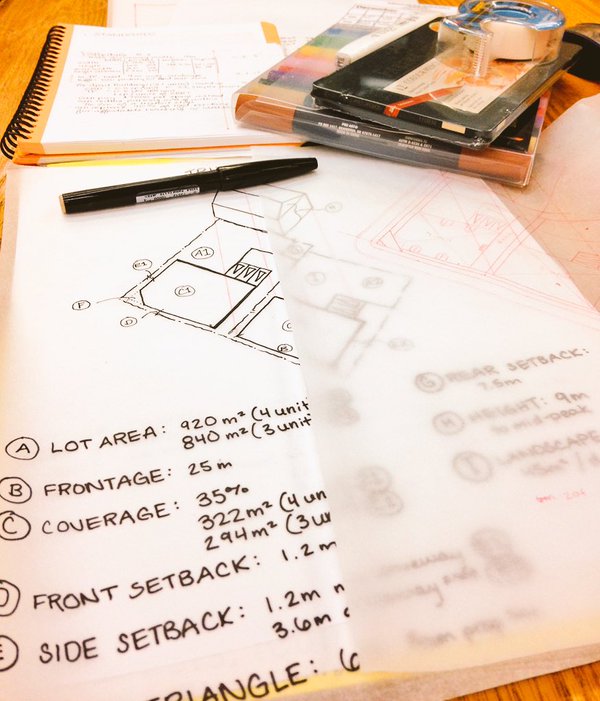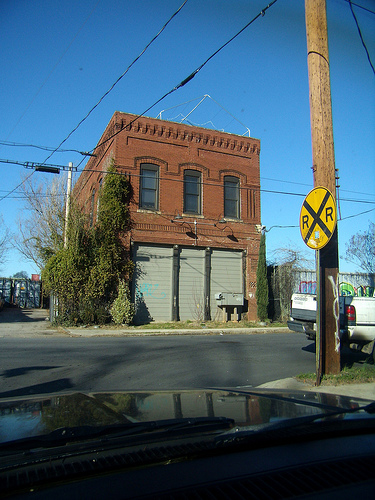 Yesterday's blog post drew some criticism from a colleague who, over the 15 years I have known them, continues to assign me additional pro bono work they think I should be doing :
Yesterday's blog post drew some criticism from a colleague who, over the 15 years I have known them, continues to assign me additional pro bono work they think I should be doing :
"--the G word is generally offensive to anyone who want to improve their neighborhood for their family. However, talking about small development in the vein of gentrification is a nonstarter unless the small development houses a diversity of incomes. Do the folks who work on a construction project live in the neighborhood they are working in? If they are currently residents, do they subsequently get pushed out when values rise? Construction jobs are usually higher paying than those in the service industry, but not by much, and they rarely provide benefits. This is especially true when the developer is small. What is true is that by virtue of their small scale any negative impact on housing costs / rents is minimal compared to large scale development. Before John writes an op-ed he should gather more ammunition or at minimum address these issues."
I will attempt to further explain what I wrote.
As to the word Gentrification being offensive, I laid out the common narrative of a developer coming in from outside the neighborhood and being the apparent cause of why rents go up and people who have lived in the neighborhood can't afford it any more.
At the start of the next paragraph I asserted that I think this familiar narrative presents an opportunity for small developers to flip the script. If that term is unfamiliar, here is a definition..
flip the script
-
1.
NORTH AMERICAN informal
reverse the usual or existing positions in a situation; do something unexpected or revolutionary.
To illustrate how small developers can flip the Gentrification script, I described how Monte Anderson, a small developer in the Southern Dallas Metro, mentors local entrepreneurs initially so that they can make it as tenants, but eventually so that they can purchase the building they are renting. For example, if the tamale guy buys the building he where he is operating, the prospect of getting forced out by Starbucks level rents paid by national credit tenants is greatly reduced. This moves the building into being part of a local entrepreneur's net worth. Working with a tenant to help them buy their building builds local wealth in the neighborhood. It is a win/win, because that same sale frees up the small developer's limited capital and credit to do something else, because now that the building is performing well for the neighborhood and does not require the developer's risk capital.
In the final paragraph I described the necessary symbiotic relationship between the local building trades who probably live in the neighborhood and the small developer working incrementally in the same neighborhood. The local trades need steady work that they don't have to travel long distances to perform. The small developer needs a stable trade base to be able to build effectively at a small scale, which is increasingly difficult through arms length bidding in markets with a shortage of skilled trades. I recommended taking this symbiotic relationship to the next level by helping individuals in the trades start their own crews, mentoring them, introducing them to a capable bookkeeper, guaranteeing their trade credit with local suppliers for a while. With time, the tradesperson turned small trade contractor could become a small developer in their own right, building, renovating and owning buildings in their neighborhood. Again, creating local wealth and local jobs.
The point of the blog post was to alert small developer to the necessity of doing the right thing. Cultivating local trades is essential to the small developer business model.
Perhaps the blog title:
-was too subtle.
 I got an opportunity to work with Gracen Johnson during the recent Kalamazoo Small Developer Boot Camp. I was already pretty clear on the fact that she is an exceptionally bright person, but I had no idea what a quick study she is on new technical skills.
I got an opportunity to work with Gracen Johnson during the recent Kalamazoo Small Developer Boot Camp. I was already pretty clear on the fact that she is an exceptionally bright person, but I had no idea what a quick study she is on new technical skills.
 Yesterday's blog post drew some criticism from a colleague who, over the 15 years I have known them, continues to assign me additional pro bono work they think I should be doing :
Yesterday's blog post drew some criticism from a colleague who, over the 15 years I have known them, continues to assign me additional pro bono work they think I should be doing : I think incremental development, modest projects by Small Developers focused on a specific neighborhood, present an genuine opportunity to get well past the usual arguments about gentrification. The usual narrative describes how immoral developers come into a neighborhood that is in rough shape and start renovating old buildings and building new ones. New trendy restaurants appear and before you know it rents are going up and folks who have lived in the neighborhood all their lives can no longer afford to live there.
I think incremental development, modest projects by Small Developers focused on a specific neighborhood, present an genuine opportunity to get well past the usual arguments about gentrification. The usual narrative describes how immoral developers come into a neighborhood that is in rough shape and start renovating old buildings and building new ones. New trendy restaurants appear and before you know it rents are going up and folks who have lived in the neighborhood all their lives can no longer afford to live there.